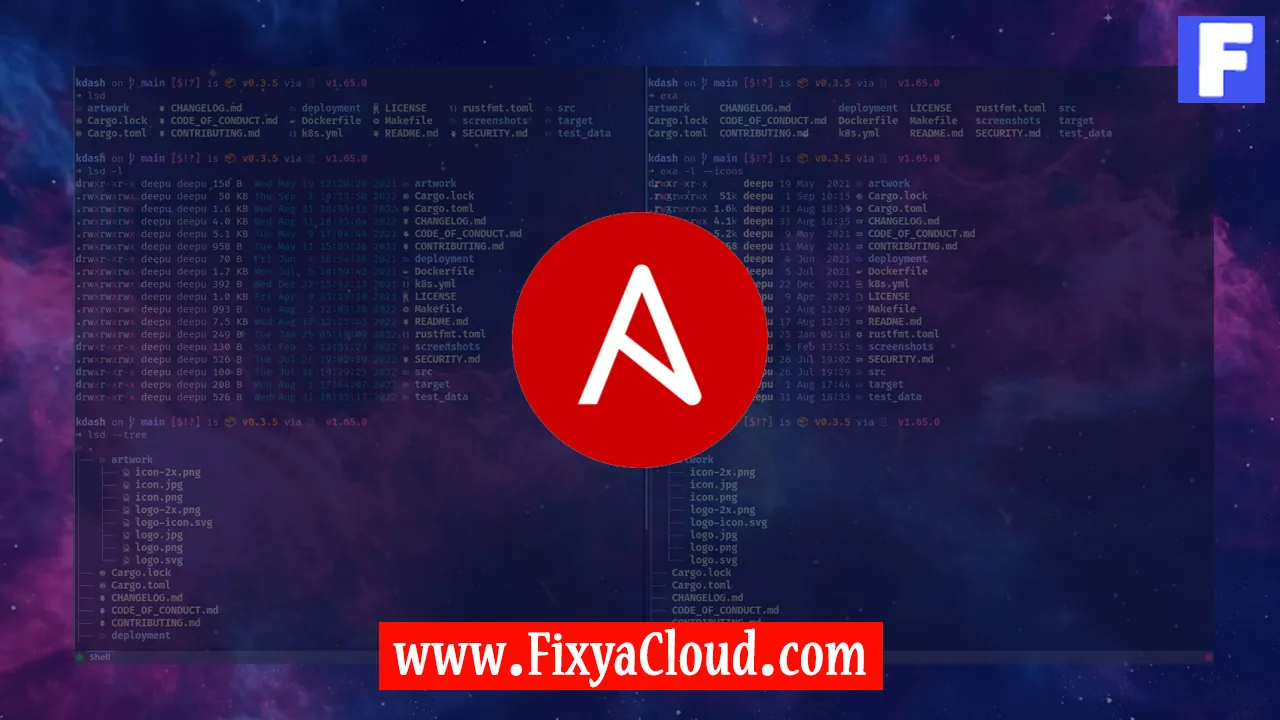15 Must-Have Ansible Modules for DevOps Automation

In the fast-paced world of DevOps, automation is the key to efficiency and scalability. Ansible, a powerful open-source automation tool, simplifies complex tasks and orchestrates workflows seamlessly. One of Ansible's strengths lies in its modules, which are small pieces of code that perform specific tasks. In this article, we will explore 15 must-have Ansible modules for DevOps automation, showcasing their versatility and usefulness in streamlining various processes.
1. Command Module: Executing Commands
The Command module is the most basic yet essential module in Ansible. It allows you to run arbitrary commands on remote nodes. Here's an example:
- name: Execute a command
command: ls -l
This simple command lists the files in the specified directory. The Command module is the go-to for executing one-off tasks.
2. Copy Module: Transferring Files
The Copy module is crucial for transferring files between the control machine and remote nodes. It's perfect for configuration files, scripts, or any other file-based operations:
- name: Copy a file to a remote node
copy:
src: /path/to/local/file
dest: /path/on/remote/node
This ensures seamless file distribution across your infrastructure.
3. File Module: Managing Files and Directories
The File module simplifies file and directory management tasks. You can create, delete, or modify files and directories effortlessly:
- name: Create a directory
file:
path: /path/to/directory
state: directory
This example creates a directory, showcasing the flexibility of the File module.
4. Template Module: Dynamic Configuration Files
When you need to create dynamic configuration files, the Template module comes to the rescue. It uses Jinja2 templates to customize files based on variables:
- name: Create a dynamic configuration file
template:
src: template.conf.j2
dest: /etc/config.conf
This ensures consistency and adaptability in your configurations.
5. Apt Module: Managing Packages on Debian/Ubuntu
For Debian or Ubuntu-based systems, the Apt module simplifies package management tasks. Install, update, or remove packages with ease:
- name: Install a package
apt:
name: package-name
state: present
This module enhances the efficiency of managing software on your servers.
6. Yum Module: Managing Packages on Red Hat/CentOS
Similar to the Apt module, the Yum module handles package management on Red Hat or CentOS systems:
- name: Install a package
yum:
name: package-name
state: present
Consistency across different Linux distributions is crucial, and these modules make it seamless.
7. Service Module: Managing Services
The Service module provides a standardized way to manage services on remote nodes. Start, stop, or restart services effortlessly:
- name: Restart a service
service:
name: service-name
state: restarted
This ensures the reliability and availability of critical services.
8. Git Module: Version Control Integration
Integrating Ansible with version control systems is essential. The Git module allows you to clone repositories or manage Git configurations:
- name: Clone a Git repository
git:
repo: https://github.com/example/repo.git
dest: /path/to/local/repo
This is invaluable for maintaining consistency across your infrastructure.
9. Docker Module: Container Management
As containerization becomes prevalent, the Docker module simplifies container management tasks:
- name: Ensure a Docker container is running
docker_container:
name: my-container
state: started
This module streamlines the deployment and management of Docker containers.
10. AWS Module: Cloud Integration
For cloud automation, the AWS module provides a seamless interface to manage resources on Amazon Web Services:
- name: Create an EC2 instance
ec2_instance:
key_name: my-key
instance_type: t2.micro
image: ami-0c55b159cbfafe1f0
state: present
This module is indispensable for DevOps working in cloud environments.
11. Slack Module: Communication Integration
Communication is key in DevOps, and the Slack module facilitates sending messages to Slack channels:
- name: Send a message to Slack
slack:
token: your-slack-token
channel: "#general"
msg: "Automation task completed successfully!"
Integrating communication into your automation workflows enhances collaboration.
12. Cron Module: Scheduled Tasks
For scheduled tasks and periodic automation, the Cron module simplifies the configuration of cron jobs:
- name: Schedule a task
cron:
name: "Run nightly backup"
minute: 0
hour: 2
job: "/path/to/backup-script.sh"
This ensures timely execution of routine tasks.
13. URI Module: Interacting with APIs
In a world driven by APIs, the URI module allows you to interact with RESTful APIs seamlessly:
- name: Make an API request
uri:
url: https://api.example.com/resource
method: GET
This module is invaluable for integrating Ansible into diverse ecosystems.
14. MySQL Module: Database Management
Database management is a critical aspect of DevOps, and the MySQL module simplifies tasks like database creation and user management:
- name: Create a database
mysql_db:
name: my_database
state: present
This module ensures smooth database operations in your infrastructure.
15. Slack Notify Module: Event-driven Notifications
To keep your team informed about automation events, the Slack Notify module sends notifications to Slack channels:
- name: Notify Slack on completion
slack_notify:
token: your-slack-token
channel: "#automation-alerts"
msg: "Automation tasks completed successfully!"
This module enhances transparency and collaboration.
Related Searches and Questions asked:
That's it for this topic, Hope this article is useful. Thanks for Visiting us.
